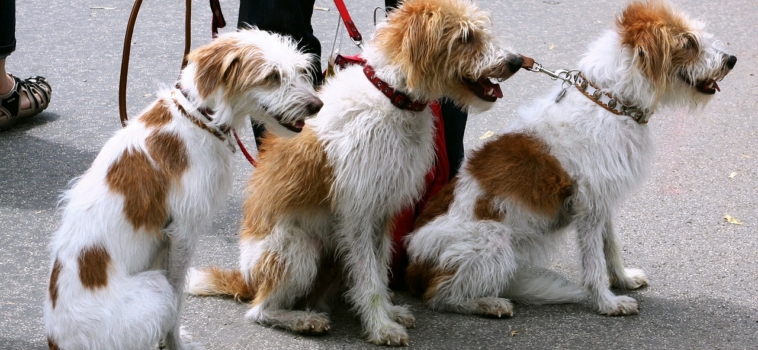By barksnpurrs
How To Choose A Dog Walker And/Or Pet Sitter.
Dog Walkers and Pet Sitters do much more than provide your pet with food and water while you’re away from home. A good dog walker or pet sitter also spends quality time with your pet, gives him exercise, and knows how to tell if your pet needs veterinary attention. What’s more, dog walkers and pet sitters typically offer additional services, such as bringing in mail and newspapers, watering plants, turning lights on and off, and providing homes with a lived-in look to deter crime.
But just because someone calls herself a dog walker or pet sitter doesn’t mean he or she is qualified to do the job. This information will help you find the best dog walker and pet sitter for you and your pet.
How Can You Find A Dog Walker Or Pet Sitter?
Start with a recommendation from a friend, neighbor, veterinarian, humane society, animal rescue organization, or dog trainer. You want someone who is recognized by the National Association of Professional Pet Sitters. This organization offers pet-sitter accreditation to those who demonstrate professional experience, complete pet-care-related home study courses, attend professional conferences, and abide by a code of ethics set by the organizations.
Choosing the right caregiver is important, not only for your dog, but for your peace of mind. Here are just few questions to ask before hiring any dog care provider:
1. Is the business licensed and/or bonded?
Although many professional dog walkers are not bonded, they typically do carry insurance which will cover items that might be broken due his or her negligence, or items that may come up missing. When letting a stranger into your home, use common sense by ensuring that all of your valuables are securely kept in a hidden area where only you have access. If a dog walker is responsible enough to have obtained insurance and bonding, they are usually going to be a trustworthy partner for your pet. Ask your dog walker to show you documentation of his/her policy.
2. Does the dog walker have experience and references?
An experienced dog walker will be able to provide references which you can easily verify. Don’t be afraid to ask for references. Your pet is a member of your family – you are right to be cautious when trusting your pet’s care to someone else.
3. What kind of training has the dog walker had in regard to your specific needs?
Many dog walkers have completed special training courses such as Pet First Aid and other basic needs courses. Ask for verification. If your needs include dog walking services, be sure to ask how many dogs are walked at a time – does this pet care provider combine walks for several clients in order to be more productive and if so, are there any behaviour concerns regarding the other dogs? Furthermore, if your pet requires medical attention such as administering medicine, ask the dog walker about experience in this area.
4. Does the dog walker provide a back-up plan in the event of illness or emergency where he/she cannot attend to your dog?
Dog walkers who have membership in a major organization for other pet care providers often network with other dog walkers in his/her area. In the event that your dog walker is unavailable for a visit, who would he or she send in replacement? Is that other person insured and/or bonded? The dog walker should also ask you for an emergency contact. Who can your walker call in the event of a weather-related emergency? Always provide a contact person in the event that your dog walker cannot reach you, especially if you are going out of town.
5. Does the dog walker employ independent contractors or other employees, and if so, are they covered under the dog walker’s insurance policy?
Do not hire a dog walker who uses independent contractors or other employees that are not adequately covered under insurance. If those contractors or other employees carry separate policies and may possibly be looking after your pet, you have the right to request copies of those policies as well.
6. Does the dog walker provide a written contract that outlines your specific needs and includes definite fees in regard to his/her services?
A well-written contact is essential for both you and your dog walker. Your walker should provide a form for you to fill out to understand your specific needs and services. The contract should also include information about the walker’s services: times/dates of visits, the length of the dog walk, etc.
7. Will the dog walker meet you for a prearranged meeting so that you may interview him/her and give you a chance to see how you and/or your dog interact with him/her?
It is important for your dog walker to make a visit to your home when you are there. This allows you to meet the walker one-on-one and see how he or she reacts with your dog. In addition, you can get a feel for the dog walker’s true personality and confidence in handling your dog. Pay attention to your dog’s reaction to the walker. Does the pet care provider’s voice irritate the dog? Does the walker seem genuinely concerned about your dog?
8. What kinds of additional services does the dog walker offer in regard to general duties such as bringing in your mail, newspaper, etc.?
If you need other services, be specific in what you need. Most dog walkers will provide additional services such as bringing in your mail, newspaper and other safety issues at no additional cost. However, always inquire about these services so you will be aware of any extra charges, if applicable.
9. Does the dog walker provide a check-in number so that you can check in on your dog from time to time if your contract includes an out-of-town visit?
A dog walker should have a contact number where you can at least leave a message during the normal business day. Many dog walkers carry cell phones for client check-ins while others use voice mail, email, text or paging services. Your dog walker should be available to answer your questions or concerns while you are away.
10. Does the dog walker provide you with a veterinary release form so that he/she may seek emergency medical care if you cannot be reached? Does the walker have a back-up veterinarian in case your vet is unavailable?
No one knows when an emergency might arise. Therefore, your dog walker should have an emergency plan for getting medical attention even if your veterinarian is unavailable. Be sure to provide a release form and notify your veterinarian of your arrangement with your dog walker.
11. Be specific about your pet’s health.
Always inform your dog walker about your dog’s dietary needs. Does the dog walker offer treats without your consent? If so, this could be a concern. Your dog’s diet is sensitive and should not be altered without the advice of your vet. If you have specific treats for your dog, be sure to give proper instructions to your walker.
As you can see, hiring the right dog walker can be a difficult decision. The pet care industry is growing rapidly, especially in the specialized field of dog walking. Always check for professionalism. With some investigation on your part, you can choose the right dog walker for your pet!
Image credit: Creative Commons Pixabay





